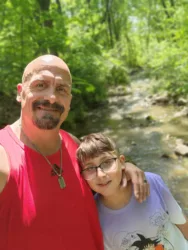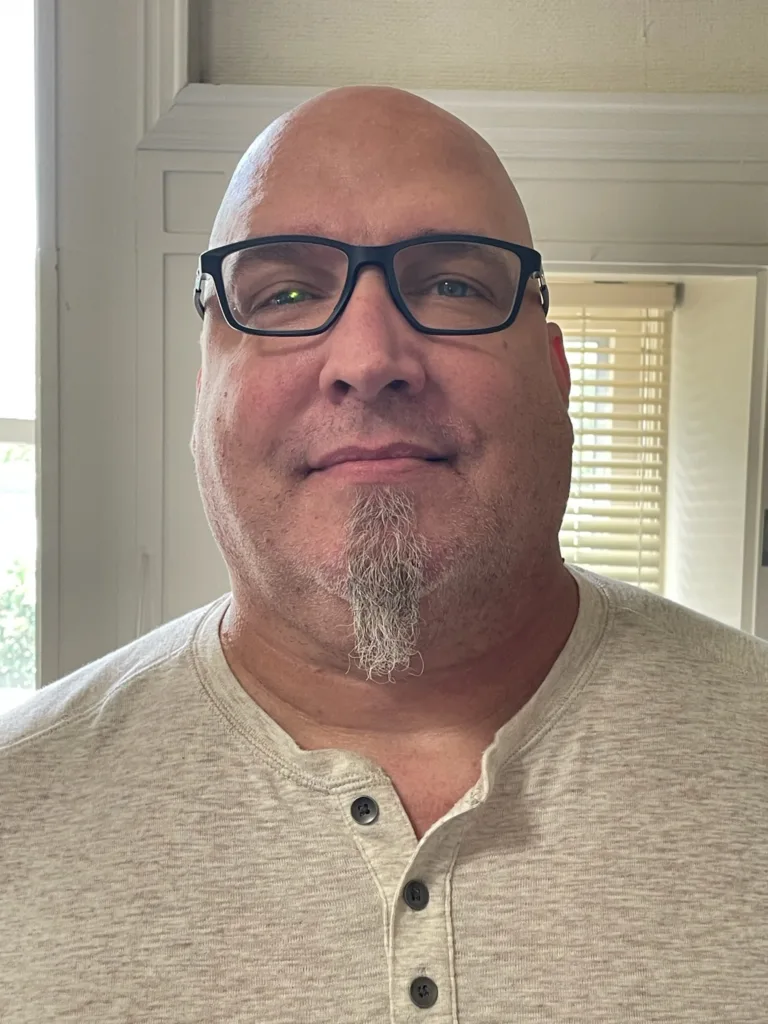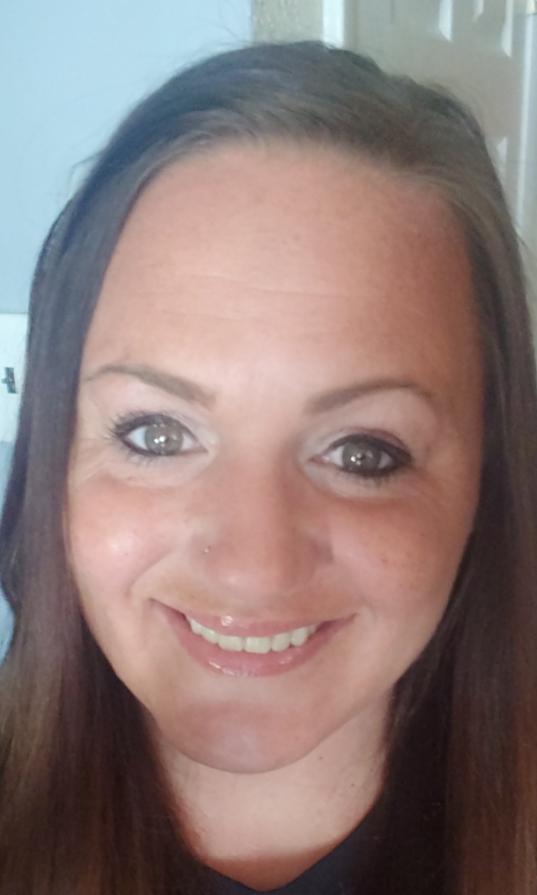National Recovery Month: Jason Catalano’s Recovery Story

September marks National Recovery Month. This national observance promotes and supports new evidence-based treatment and recovery practices. During National Recovery Month, we also celebrate all individuals in recovery along with treatment service providers and other individuals who make recovery possible.
In honor of National Recovery Month, Pyramid Healthcare’s Jason Catalano shares his personal experience. In this interview, Jason walks us down the path that led him to recovery and a fulfilling career, sharing the insights he’s gathered along the way. Since choosing recovery, Jason has embraced fatherhood, founded a nonprofit and rediscovered long-lost joys.
Walk us through your recovery journey.
The first six months of my recovery happened in Lehigh County jail. (Yes, it’s possible to recover in jail.)
Knowing me now, you would not think I’ve been through what I have. I’ve spent many years in the penitentiary and was heavily involved in gang activity. I became involved because of my insecurities and the want to belong, and to be accepted. I never believed in the ideology of what was taught or what we were representing. Growing up, my Father was a Nazarene Pastor and I was raised in the Church. My Father passed away at the age of 35, I was 14. We were very close and his death was the driving force behind all the madness. Maybe the decisions I made in Prison were to be accepted, maybe to feel respected or make a name for myself or maybe I lost the sense of family and when you are involved in a life like that, that’s the only family you have, no matter how violent or twisted it can be.
But on August 6, 2016, God stepped into my life and made a major transformation.
I found myself in a suicide cell with no clothes, just a turtle suit over me, no dignity. I was feeling like I wanted to die. It hit me that I was 39 years old and had nothing to show for my life. I had given away my children, my family, my opportunities — everything positive that I had in my life. I was left with just myself, whoever that was.
God spoke to my life, saying that if I continued to use it, I would die, and this feeling of dread came over me, I couldn’t shake it. That day, I decided that no matter what it took, with God’s help, I was going to change the way I lived. I had no idea how I was going to do it, but I knew that I was done. I was open to whatever was coming.
After the suicide cell, I went onto the unit and I had a decision to make. Would I continue on this path or change my life? There was a drug and alcohol program that I heard about and I knew that this was the path to take. Since there were many of my old associates on this unit I had to inform them that I was walking away from all of it, the gang, the drugs, and the madness. I remember praying before I walked into the cell where everyone was waiting to see what I had to say, I was scared to death, but I knew I didn’t want to live that life anymore. I didn’t want to represent the ink I had. I told my old gang associates I was done.
God allowed me to walk out of that interaction unscathed. Later that evening, I was called to pack my stuff because I was moving to the drug and alcohol pod. God showed up and followed through with his promise. I changed my name back to Jason and refused to be called by the street name. I lived as honestly as I possibly could in jail. Previously, I had been “The Man”. . I could tattoo really well, I had my hands in everything that came in: drugs, cell phones, whatever. I was well connected but I put a stop to it all. My life on the inside was better than on the outside.
Once I decided to change my life, I found that as long as I was living with integrity, God provided me with everything I needed. And I knew that if I could change my behavior in there, I could do it on the streets.
What led you to work in the recovery space?
Three months into recovery, I went on a work release. I just kept to myself and attended the meetings that were available to me. I met with the pastors and the people who came in for 12-step meetings, got involved and got vulnerable. That was a safe environment where I was allowed to feel what I had to feel.
It was February 17 when I got out. I had never been to Allentown before, and I got dropped off at the bus station with the jail clothes and a garbage bag full of clothes that were given to me — nothing else. I walked up Linden Street to this recovery house. I knocked; no one answered the door.
I had no idea what to do. I borrowed a stranger’s phone to call the pastor from work release. He came right over and picked me up. He bought me groceries, his mom cooked for me and I stayed until people returned to the recovery house at 7 p.m. Again, in the hardest moment and not knowing what to do, God showed up.
I didn’t even have a room of my own. I was sleeping on the broken-down couch. Just to reinforce the stigma, there were guys using upstairs. Again, in the hardest moment and not knowing what to do, God showed up.
According to stigma, if you’re a drug addict, that’s what you deserve as far as housing. “Be grateful you have a roof over your head.” But I knew that if I didn’t use it, it would get better. I knew that this would be the last time that I had to do this again as long as I stayed clean.
During my first year of recovery, there were ups and downs. I had fallen out with my family. Shortly after I got out, my grandmother died, and I reconnected with my brother, Nathan, at her funeral. We began to rebuild our relationship. Then my grandfather went into hospice and I was able to help care for him alongside my brother. During one of his lucid moments, I asked for forgiveness. He replied, “Forgive you for what? We all make mistakes.” I got to hold his hand when he passed.
Two weeks after celebrating one year in recovery, I got a phone call at two a.m. My brother’s wife was screaming on the phone. Nathan had died of an overdose. This was when fentanyl first came on the scene and we were just discovering how deadly it was. My brother’s toxicology report showed five different kinds of fentanyl.
That phone call marked the beginning of my recovery work.
In November 2017, a couple of months after my brother passed, I called Brian Graham, the executive director of Allentown Outpatient Pyramid Healthcare. He worked at Quakertown at the time. I asked for a job. He told me to call him back in 10 minutes and I did. Next thing I knew, I had an interview at the Men’s Residential Treatment Center in Quakertown and was hired by Lora Shawley as a Behavioral Health Technician (BHT).
Through my career journey, I learned that God turns our nightmares, our worst experiences, into our best assets. The rapacious regret falls away when you realize you had to go through the journey to become the person that you are today. I don’t believe in failure. For me, the only failure is to put a needle on my arm again. Everything else is just a character-building and refining experience that can be used to help someone else.
How did mentors, sponsors and peers assist with your recovery and/or career in recovery?
When I first started at Pyramid in Quakertown, I didn’t always understand the boundaries we needed to set with clients. Why can’t I be Facebook friends with them? Why can’t I give them my personal phone number when they get out? Why can’t I sponsor them? They really need my help! My mentors were patient with me, teaching me why those boundaries, rules and policies were in place to not only protect us but to protect the clients.
My colleagues were also super supportive when I went for my Certified Recovery Specialist (CRS) certification in 2018. I also have coworkers I’ve grown together with in this company, who have been there every step of the way.
It’s amazing to think that back in 2015, I was a Pyramid client, raising havoc in inpatient. I was kicked out of Duncansville and Langhorne. Still, this company gave me the opportunity to grow and become executive director working in the same building I once got kicked out of. I want clinicians to remember that the clients that they are working with may one day be their coworkers. I love our company and I endorse Pyramid.
Do you have any pieces of advice for people who are currently in recovery or thinking that they’re getting to that point where they want to pursue recovery?
Feelings are not facts. Just because you feel like the sky is falling doesn’t mean that it is.
The urge to get high is not necessarily going to go away. Cravings are normal. Especially in the beginning, I’d be in tears because I wanted to get high so badly. But I knew that if I held on, it would get better. I’d make it through another day. Just because the urge is there doesn’t mean you have to act on it.
Realize that your past will be your best asset if you let it. I’m open about my past and what I’ve been saved from. It’s all by God’s grace and unfailing love and mercy that I am here today, period.
What parts of yourself have you rediscovered or newly discovered while in recovery?
In the beginning, my quality of life declined after I changed my life. Before, I was the man. I was known. I had friends. I was respected, even feared. But the day I walked out of jail, I was nobody.
In the past, all of my actions and decisions were driven by use. If I didn’t do drugs, I wouldn’t do the things that I did. So, I wanted to discover who I was without the substance use.
I’ve started my own nonprofit called Reset Recovery. We’ve been blessed to be able to help families that are in recovery. It’s a hard business because a lot of families just don’t want to talk about it due to stigma and shame. It can be hard to get people to open up and talk.
I realized that I was smarter than I thought. I’m in school right now for my leadership and ministry degree. I have a 3.9 GPA. In the past, as a student, I was just getting Cs, Ds, Fs — I just didn’t care. This time, I actually enjoyed the work.
Now, I’m a homeowner. Someone gave me a mortgage, can you believe that? I’ve been able to do some projects around the house and fix up some things. Many years ago, I’d do things like that with my dad, but I had forgotten about that. I lost my dad when I was 14 and he was only 35. I also forgot that we used to go into nature, hunt and fish. I don’t remember because of all that trauma response to losing my father.
Old memories have started to come back. I’ve started to remember all the things that I liked to do, like sitting next to a creek and listening to the rippling water. Early on in recovery, I remember walking in Cedar Beach Park at night. I was sitting on the edge of the bridge, smelling the cedar and looking at the lightning bugs all around. There was a full moon and the ripples in the water looked like a million diamonds. It felt like that moment that was created just for me. I was the only one in Allentown, the only one in Pennsylvania, the only one in the world who was experiencing that moment in time.
I’m just one person, and that can seem insignificant, but it’s not. I’m important. I don’t deserve a damn thing. If I got all that I deserved, I’d have died a long time ago.
But I’ve been given this grace, this gift of recovery. All I had to do was reach out and grab it. I had to trust others, to be open and honest with them. I don’t have to go back and live another day of my old life ever again. That chapter is closed. I remember just enough so that I don’t ever go back.
How has recovery impacted your family life?
I had two sons back in Arizona, where I’m from. I was sentenced to prison when they were one and two years old. I did not see them again until they were nine and 10. I only got to see them once. The next time I saw them, they were 6’5” adults.
I love kids. In jail, I would always say “I’m a good dad.” I was only fooling myself. I never had the opportunity to be a father then. During recovery, I made a promise to myself that I would, and prayed hard to have that relationship restored.
I first reached out through Facebook, and then the first time that I had an opportunity, I went out there with my wife to Arizona to meet my sons as adults for the very first time. We rented a house for a week and just hung out there and got to be a family. Then they came back here and they were able to meet their nine-year-old brother.
I raised my other son from a previous relationship since he was one, but because of my use, we didn’t talk either. He came back into my life and calls me dad. Now I’m Jay-Pa (grandpa) to his son. I’m able to be a father. I may not be with them on a daily basis, but they call me for financial advice, for life advice.
I had to fight the court system for visitation with my youngest son. I decided to do whatever they asked and now I’m able to have him any time. We co-parent, and we do holidays together because I continue to show up. I proved myself through my actions, I stopped talking about it and just started to live it. It’s pretty awesome to be a proud papa. Being a dad has been the most beautiful part of recovery for me.
Sometimes you have to remind yourself of where you were to really appreciate where you are now. It’s easy to be so consumed with the busyness that you get stuck and isolate yourself and your blessings. You get lost in the grind of schoolwork, career, bills and other obligations and forget to enjoy your blessings, to live in the moment. That’s something I’ve been working on enjoying the 24 hours that I’ve been given. Work is not my life. My family is my life.



